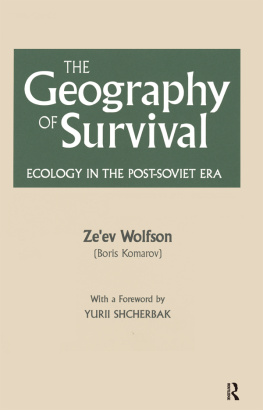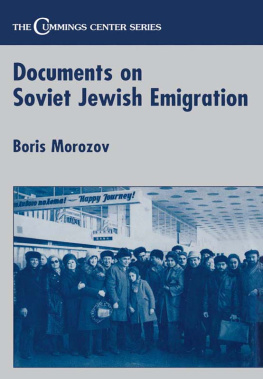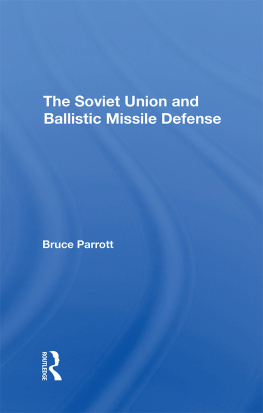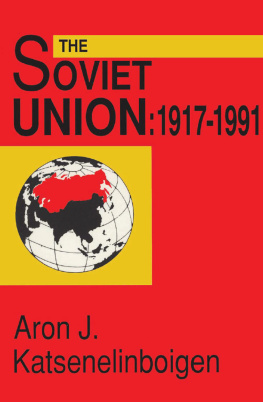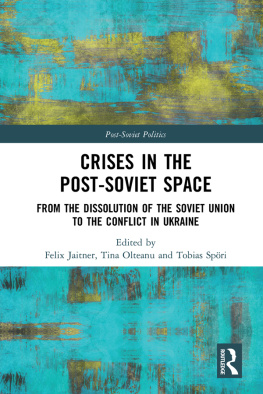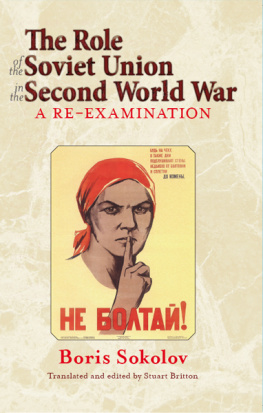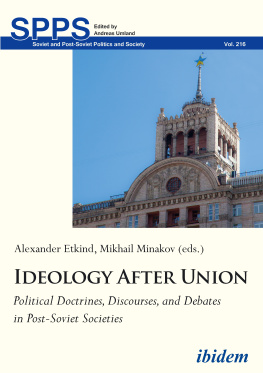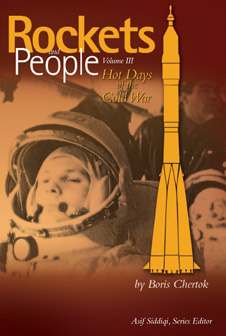THE Geography OF Survival
ECOLOGY IN THE POST-SOVIET ERA
In recent years the damaging environmental effects of communism in central and eastern Europe have been extensively described. Will post-communism be worse?
In this new book, Zeev Wolfsonwho under the name Boris Komarov wrote a classic about the destruction of nature in the Soviet Uniondescribes the environmental deterioration in the northern and southern parts of Russia. In the weak and fragile ecological conditions of Siberia, production of oil and gas is the driving force behind ongoing decay. In the south, cotton production is one of the damaging factors contributing to both water pollution and shortage. Even after reading many publications about environmental destruction in the former Soviet Union, it is not possible to read these pages about the authors native country without any emotion.
Perestroika brought more instead of less ecological destruction, with ensuing international and global environmental risks due to the eco-domino effectthe momentum of ongoing processes of ecological deterioration that can hardly be stopped once they have started. The nuclear nightmare has been transmuted into an ecological nightmare.
The lesson of the book is that we should interpret environmental problems in Russia no longer from the perspective of a society suffering under communist totalitarian state control, but a society in a state of anarchy and suffering from a breakdown of government control. Contemporary Russia is in need of help from the west, but also of protection against the westamong others, against its atomic lobby and chemical waste mafia.
Egbert Teilegen
University of Amsterdam
First published 1994 by M.E. Sharpe
Published 2015 by Routledge
2 Park Square, Milton Park, Abingdon, Oxon OX14 4RN
711 Third Avenue, New York, NY 10017, USA
Routledge is an imprint of the Taylor & Francis Group, an informa business
Copyright 1994 Taylor & Francis. All rights reserved.
No part of this book may be reprinted or reproduced or utilised in any form or by any electronic, mechanical, or other means, now known or hereafter invented, including photocopying and recording, or in any information storage or retrieval system, without permission in writing from the publishers.
Notices
No responsibility is assumed by the publisher for any injury and/or damage to persons or property as a matter of products liability, negligence or otherwise, or from any use of operation of any methods, products, instructions or ideas contained in the material herein.
Practitioners and researchers must always rely on their own experience and knowledge in evaluating and using any information, methods, compounds, or experiments described herein. In using such information or methods they should be mindful of their own safety and the safety of others, including parties for whom they have a professional responsibility.
Product or corporate names may be trademarks or registered trademarks, and are used only for identification and explanation without intent to infringe.
Library of Congress Cataloging-in-Publication Data
Komarov, Boris
The geography of survival : ecology in the post-Soviet era / Zeev Wolfson.
p. cm.
Includes bibliographical references and index.
ISBN 1-56324-075-0. ISBN 1-56324-076-9 (pbk.)
1. Environmental protectionFormer Soviet republics.
2. Former Soviet republicsEnvironmental conditions.
3. Conservation of natural resourcesFormer Soviet republics.
I. Title.
GE160.S65K66 1993
363.700947dc20
93-4081
CIP
ISBN 13: 9781563240768 (pbk)
ISBN 13: 9781563240751 (hbk)
Speaking to the opening session of the global environmental conference held in Rio de Janeiro in June 1992, UN Secretary General Boutros Boutros-Ghali said that all of Mans victories had been victories over Nature. But, Boutros-Ghali warned, the world is finite. Nature in the true sense of the word is no more. The idea that a boundary had finally been crossed, and that development of the planet had become increasingly dangerous, was the focus of every presentation at the Rio-92 summit. What became unmistakably clear in Brazil was the extremity of the situation and the strength of political will that would be required to save the planet.
Zeev Wolfsons Geography of Survival exemplifies the spirit of Rio, the spirit of concern and hope, knowledge and foresight. It is not a hastily assembled set of banal statements about fashionable ecological subjects.
Leo Tolstoy once said that a real novel should begin with the protagonists marriage rather than end with a romantic kiss before their wedding. Basically, Wolfsons book begins where most other ecological publications end. The author goes beyond the simple statement that environmental pollution has no regard for national boundaries and that ecological problems have acquired a global character. He adduces a wealth of factual material to expose the mechanism of the catastrophe, the way in which it is spreading over the planet, and its causes and possible consequences.
The Geography of Survival offers dramatic proof of the way shortsighted political solutions have led to grave environmental damage and in the course of a few decades turned the former USSR into one of the most dangerous places on Earth. Here the author advances what he calls the eco-domino principle, analogous to the domino effect Zbigniew Brzezinski described in world politics. Wolfson shows how aridization, loss of natural soil, destruction of fresh water resources, and other ecological problems in one region push neighboring regions to the brink of degradation. The dominoes are toppling from East to Westfrom the Aral Sea for thousands of kilometers toward Europe and from the Kola Peninsula toward Scandinavia. Waves of ecological refugeesfor instance, from Karakalpakia on the shrinking Aral Sea and from the area of the Chernobyl Nuclear Power Plant disasterfollow the same westward path.
It is no coincidence that the author focuses his study on two regions of the former Soviet UnionCentral Asia and the polar regions. A former Soviet citizen, Wolfson received his training in Moscow Universitys Department of Geography. As an employee of the Department of Nature Preserves, he was able to travel the USSR far and wide and gather a wealth of data on environmental conditions.
In 1979 Wolfson wrote a daring and sensational bookThe Destruction of Nature in the Soviet Unionthat exposed the ecological crimes of the USSRs communist regime. Initially he hoped to publish the book in Moscow, but that proved impossible, given the determination of the Brezhnev government to suppress all information about the countrys deteriorating environment and quality of life. Moreover, the author was already known to the KGB as a Jewish activist. Published in the West under the pseudonym Boris Komarov, The Destruction of Nature in the Soviet Union was translated into English, German, Japanese, Italian, and other languages. It aroused great interest and was praised by Aleksandr Solzhenitsyn and Andrei Sakharov as well as environmental experts and activists around the world as the best available source of information about the ecological crisis in the USSR. I recall that my parliamentary colleague Aleksei Yablokov and I discussed the book with then Senator AI Gore (now Vice President of the United States) during his visit to Moscow as a guest of the Environmental Committee of the USSR Supreme Soviet.

